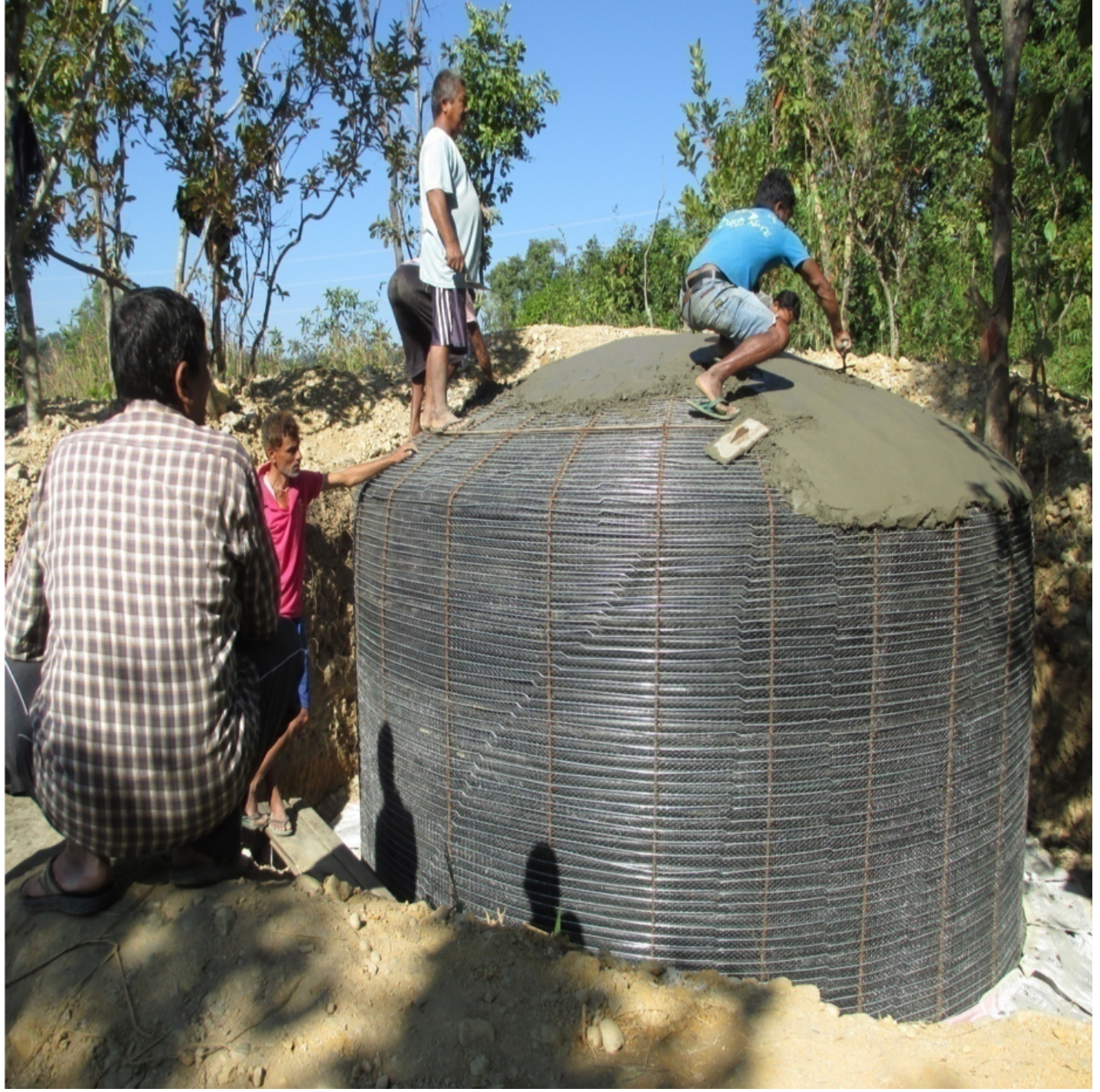Beating Drought in Nepal: Water Management in the Chure region
Invest in local capabilities
Build understanding
Ensure transparency and accountability
Devolve decision making
Address structural inequalities
Organization: COMMUNITY DEVELOPMENT & ADVOCACY FORUM NEPAL
Beneficiaries: 40000
2022 LOCAL ADAPTATION CHAMPIONS AWARD WINNER
In the Madhesh Province of Nepal, where the Siwalik Hills give way to flat Terai plains, communities now regularly face drought, erratic rain, and flooding, depending on where they live.
To mitigate both problems, Community Development & Advocacy Forum Nepal, led by the community, is implementing measures to rehabilitate land, conserve water, and manage the river system, particularly the Ratu river. The techniques were developed by the community, based on tried and tested, environmentally friendly, and cheaper indigenous water management techniques.
Where previously, temporary dams made from branches, leaves, and stones to control and divert water towards agriculture fields were dislodged even by small floods, the community has now built underground water canal below the river surface to raise and channel water towards agriculture fields for year-round irrigation. In addition, rainwater harvesting ponds were built upstream for more effective water conservation, and ground water management and recharging. Taking an ecosystem approach, rehabilitation efforts have been undertaken in upstream areas to prevent soil erosion, to benefit communities downstream and improve their access to water.
Dry riverbanks have been turned into green areas with mango, litchi, lemon, and papaya trees and vegetables, explained Nagdev Yadav, President of the Community Development & Advocacy Forum Nepal. Thanks to this work, more than 10,000 households – mostly landless families and smallholder farmers – now enjoy a steady supply of fresh produce to feed their family and earn a higher income.

Photo Credit: CDAFN
Women acting on solutions
Interventions are designed together with the landless communities, indigenous communities, minorities, women and other vulnerable members of society to provide them with long-term livelihood security, tap into indigenous knowledge and skills, like pig farming or bamboo crafts. Up to 300 households are directly involved in designing the interventions, including water harvesting ponds, irrigation systems, degraded land rehabilitation, and fruit plantations.
"Our interventions address the pressing issues associated with the livelihoods of the local community along the river basin from the Siwalik hills down to the Terai, Yadav said. Communities that could only grow only one crop a year grow up to three, boosting incomes and food security."
"In the upstream areas of Chure, people used to dig deep or walk long distances to find drinking water. Now, instead of just one rice crop a year, they can grow maize, wheat, vegetables and fruits, and they have seen the benefits on their nutrition and harvests, said Yadav."
"Initially, there was scarcity of water for drinking and irrigation, said Bhabani Thapa, Treasurer of Kalikhola Community Forest Users Committee of Mithila Municipality, who participated in the rehabilitation of the Ratu River."
Lack of water meant she could only produce three months' worth of food from her land.
"Now we have an irrigation canal and a drinking water tank, and all of us in the village have a tap in our house. This has improved personal hygiene for the children and helps us keep our homes clean. Importantly, families no longer have to go hungry."
These conservation efforts – in collaboration with local government – have ensured joint accountability among community members and local government. The community has control over funds through a committee, so that they can prioritize interventions while ensuring accountability and transparency.
"Putting communities in charge of managing resources is a powerful incentive, Yadav noted. They see the changes happening and want to be part of the process."
As women's participation has increased, so has their influence in decision-making roles. The participation of women is ensured in more than 60% of projects. Women successfully run fish farms (which provide income while recharging ground water), village hotels, grocery shops, and poultry and duck farms.

Photo Credit: CDAFN
Local action for longer-lasting results
The community also has ready access to market information, such as pricing, supply and demand and market trends that producers should pay attention to, thanks to their partnership with private agro-vet suppliers, nurseries producers, vegetable retailers and wholesalers. Strong collaboration with local government has increased trust at different levels of society, with smallholders, landless minorities, the poor and wage laborers all included in green campaigns to support livelihoods.
Professor Patrick Verkooijen, Chief Executive Officer of the Global Center on Adaptation, said: "Local communities know what the solutions are to tackle our climate crisis. Community Development & Advocacy Forum Nepal ensures that communities get the necessary resources, and that the knowledge they have can be put to use and replicated across affected areas."
Jury Member Ban Ki-moon, Chair of the Global Center on Adaptation, and 8th Secretary-General of the United Nations, said: "Climate change threatens everyone so everyone must be empowered to tackle it. The organization ensures every local group is represented so climate adaptation solutions meet the needs of the whole community."
Saima Wazed Putul, Thematic Ambassador for Vulnerability of The Climate Vulnerable Forum, also a Jury Member, added: "I like the organization’s broader solution approach that will in the long run enable this community to continue expanding and growing, eventually bringing much needed economic and social change."